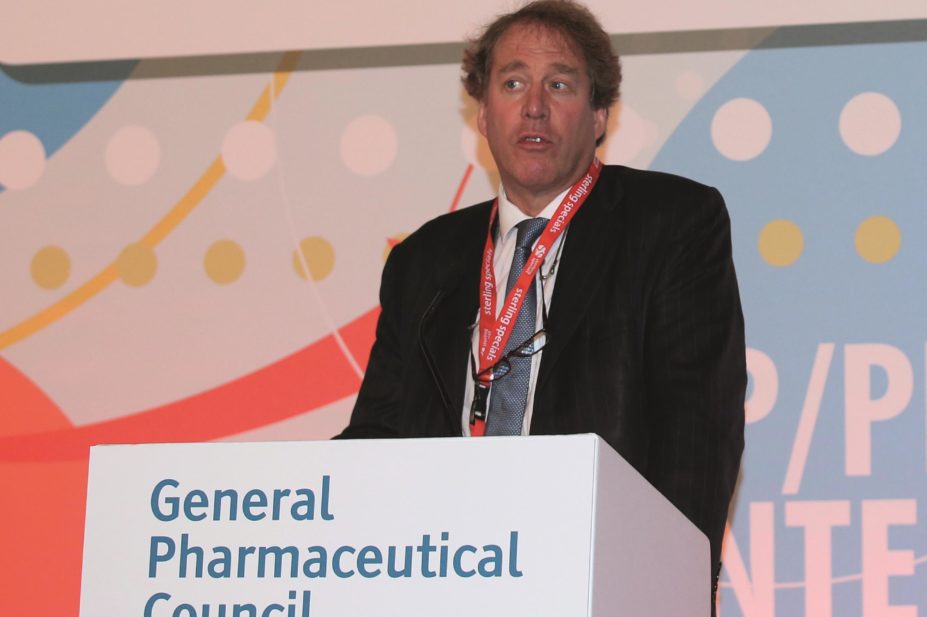
The Pharmacy Show
The General Pharmaceutical Council (GPhC) is to review its core regulatory standards for pharmacists in light of increased demands being placed on pharmacy and the pace of change in healthcare.
Nigel Clarke, chairman of the GPhC, told The Pharmaceutical Journal that the regulator is confident the great majority of pharmacists were meeting the standards on “conduct, ethics and performance”. “We start from a thoroughly sensible place,” he commented.
No timeline was put forward, but the standards will be consulted on “sooner rather than later”, with the review expected to be on a larger scale than the GPhC’s 2012 draft standards for registered pharmacies, which saw hundreds of responses and proved controversial with a proposal on the self-selection of pharmacy medicines.
At the Pharmacy Show in Birmingham on 5 October 2014, Clarke told delegates: “If these standards are to be meaningful, the professions need to feel some sense of ownership; the standards need to be strongly influenced by what you have said and what your experience is of every day in pharmacy.”
He described the reasoning behind the review: “There are a lot of things changing in healthcare; there are significant pressures on all aspects of healthcare from community right through to hospitals where things are changing. It is sensible to keep an eye on these kinds of standards to ensure they are appropriate to the way we are delivering pharmacy — but also that they are appropriate to the expectations of patients and the public and other commissioners of care.”
Clarke said that while the “experience of the overwhelming majority of patients in pharmacy is positive, no one should be complacent and it won’t be the experience of all when receiving care”.
He highlighted how events at Mid-Staffordshire NHS Foundation Trust in England and the Vale of Leven in Scotland showed a failure in governance and regulation.
“[M]ore starkly it showed what happens when clinicians and those providing care forget what it means to be a professional; when they fail to show professionalism,” Clarke said. “It shows what happens when professionals, managers and leaders are not putting patients first, such as the prioritisation of management targets over patient care; the failure to listen to patients and be candid when things go wrong. A failure to speak up and to blow the whistle when leaders fail to act and, ultimately, harm by neglect and abuse of patients.”
He pointed out that demonstrating professionalism was “not always easy”, adding: “What’s the difference between active promotion of a valuable service, such as medicines use reviews, and profiteering with unnecessary interventions? Should you tell a patient about a dispensing error even if you know that they will not come to harm?”
As part of the review, the GPhC will be asking patients and the public what they see as professionalism of pharmacists and pharmacy technicians and what their expectations are. The current standards on “conduct, ethics and performance” contain seven principles, including making patients your first concern, being honest and trustworthy and taking responsibility for your working practices. One clause states: “Make sure that your professional judgement is not affected by personal or organisational interests, incentives, targets or similar measures.”


